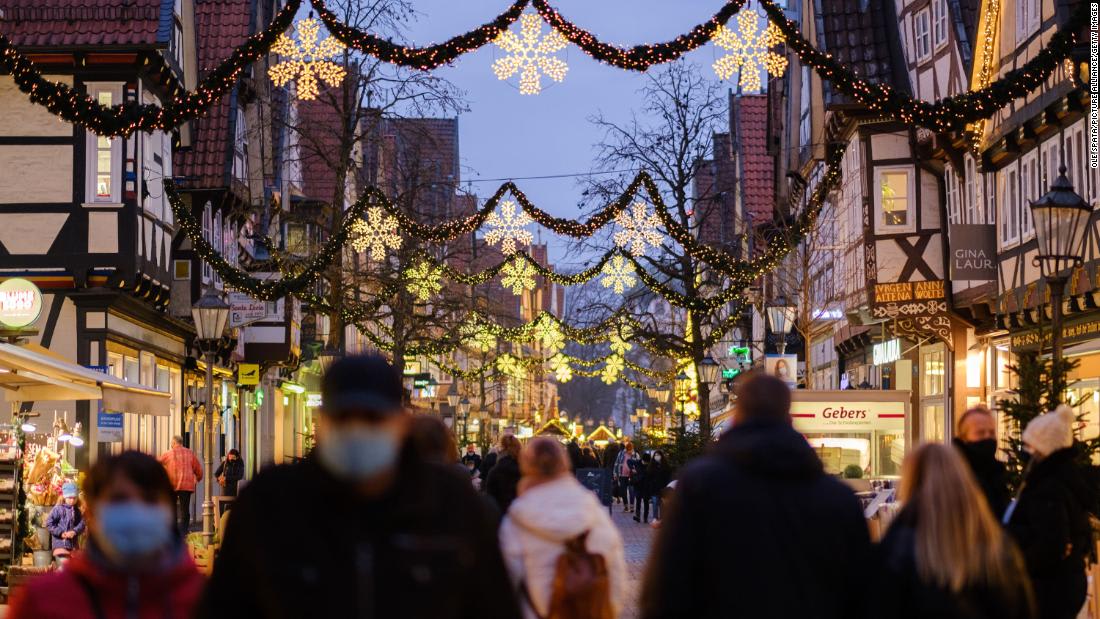Germany will go into a “hard” national lockdown, starting next week and continuing through the Christmas period, German Chancellor Angela Merkel said Sunday, after agreeing to stricter measures with state governments to stem a wave of coronavirus cases.
As of next Wednesday, all non-essential shops, services and schools will close until January 10, and Christmas Day gatherings will be reduced from 10 people to only five from two different households.
This week, Merkel made an impassioned plea for Germans to limit their social contacts ahead of the holidays: despite the country’s respected health system and early success in containing the virus, a recent partial lockdown has failed to stop the second-wave surge. Germany reported record daily deaths on Friday, with 598 fatalities tallied in a span of 24 hours.
The new measures take aim at traditional festivities: Christmas church services will be subject to prior registration with no singing allowed, alcohol is to be banned from all public spaces and an annual New Year’s Eve fireworks display will be canceled. Some states are also implementing additional measures, such as Bavaria, which will have a 9 p.m. curfew.
German Finance Minister Olaf Scholz has pledged economic help for all businesses affected by the lockdown.
Case numbers: On Sunday, Germany recorded 20,200 new coronavirus infections — 2,000 more than Sunday last week — according to the Robert Koch Institute, the country’s agency for disease control. The overall infection number stands at 1,320,716. The death toll rose by 321 to 21,787, data showed.
You may also like
-
UK coronavirus variant has been reported in 86 countries, WHO says
-
NASA technology can help save whale sharks says Australian marine biologist and ECOCEAN founder, Brad Norman
-
California Twentynine Palms: Explosives are missing from the nation’s largest Marine Corps base and an investigation is underway
-
Trump unhappy with his impeachment attorney’s performance, sources say
-
Lunar New Year 2021: Ushering in the Year of the Ox


